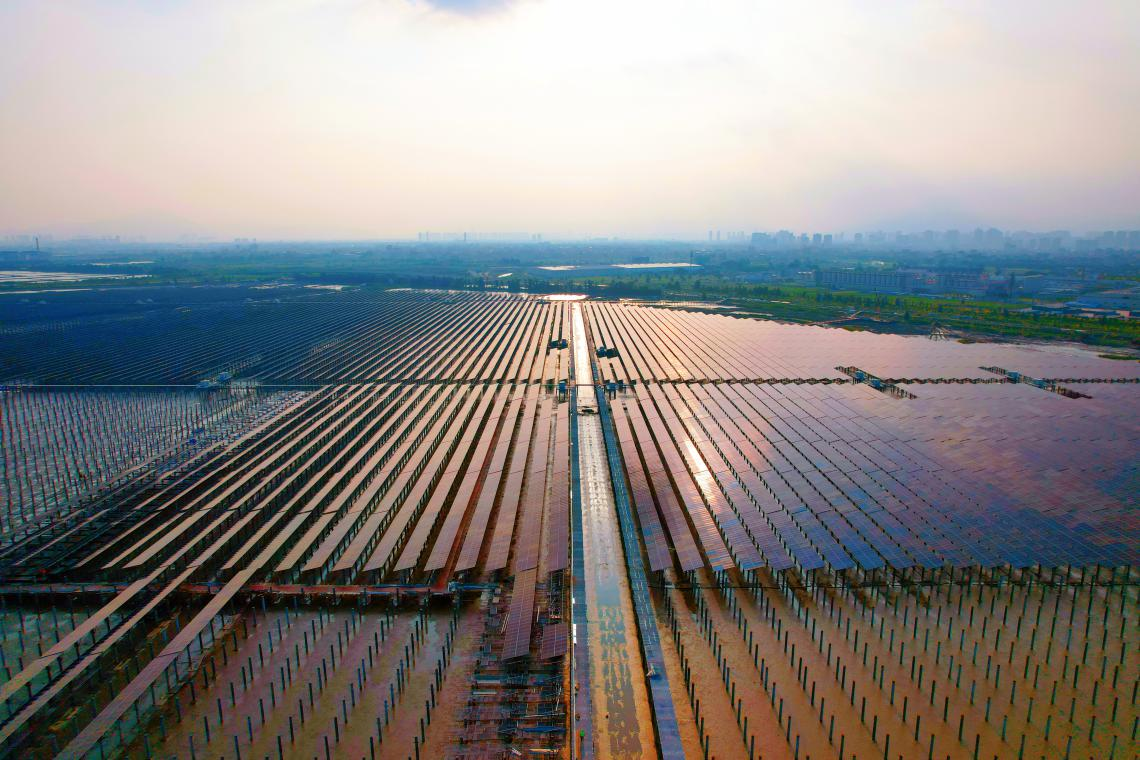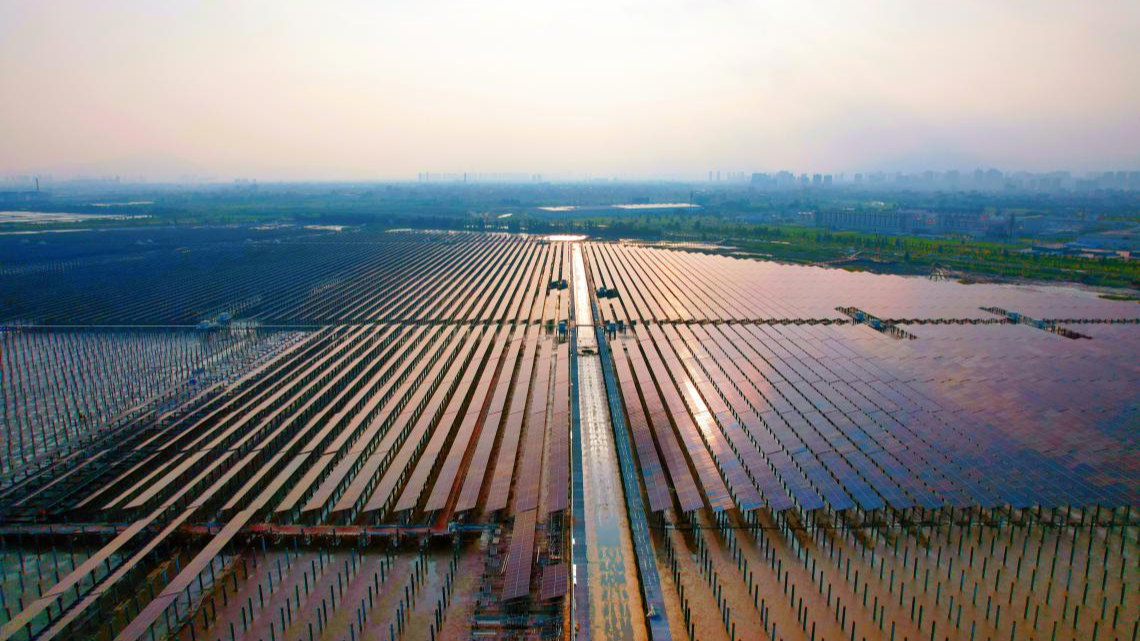
A large-scale offshore hybrid fishery-solar plant in southeast China's Fujian Province is connected to the grid on September 5, 2024. (Photo provided by State Grid Putian Power Supply Company/Lin Shinan)
BEIJING, Sept. 15 (Xinhua) -- A large-scale offshore hybrid fishery-solar plant, located on a tidal flat area along the Xinghua Bay in Hanjiang District of Putian City, southeast China's Fujian Province, has recently been connected to the grid.
The project is expected to generate over 130 million kilowatt-hours (kWh) of clean electricity for the grid every year. With an installed capacity of 100 megawatts (MW), it has built a new 2.8-kilometer transmission line, a 110-kV step-up substation and a set of electrochemical energy storage units, according to Zheng Xincheng, a staff member with State Grid Putian Power Supply Company.
Combining fish farming and solar power generation, the project realizes vertical use of the water space by developing fishery under the solar panels, according to Li Jun, the person in charge of the project site, introducing that the cooling effect of water bodies on solar devices can also significantly improve the efficiency of power generation.
Compared with thermal power plants with same capacity, the project can save about 46,000 tonnes of standard coal each year, reducing carbon dioxide emissions by 126,000 tonnes and sulfur dioxide emissions by 15.4 tonnes.
Since the project started construction, State Grid Fujian Electric Power Co., Ltd. has organized multiple special coordinating meetings and assigned special customer managers to provide high-quality service. The State Grid branch also proactively carried out inspections on the supporting devices to ensure smooth grid connection of the project.
In recent years, Putian has made extensive efforts on ecological priority and green development, leveraging its environmental characteristics and resource advantages to explore modern power systems such as hybrid fishery-solar plants, and contributing to green and low-carbon transformation of energy. (Edited by Yu Huichen with Xinhua Silk Road, yuhuichen@xinhua.org)




 A single purchase
A single purchase









